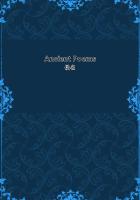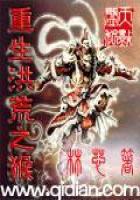Smith sets out from the thought that the annual labour of a nation is the source from which it derives its supply of thenecessaries and conveniences of life.He does not of course contemplate labour as the only factor in production;but it hasbeen supposed that by emphasising it at the outset he at once strikes the note of difference between himself on the one handand both the mercantilists and the physiocrats on the other.The improvement in the productiveness of labour dependslargely on its division;and he proceeds accordingly to give his unrivalled exposition of that principle,of the grounds onwhich it rests,and of its greater applicability to manufactures than to agriculture,in consequence of which the latterrelatively lags behind in the course of economic development.(24)The origin of the division of labour he finds in thepropensity of human nature "to truck,barter,or exchange one thing for another."He shows that a certain accumulation ofcapital is a condition precedent of this division,and that the degree to which it can be carried is dependent on the extent ofthe market.When the division of labour has been established,each member of the society must have recourse to the othersfor the supply of most of his wants;a medium of exchange is thus found to be necessary,and money comes into use.Theexchange of goods against each other or against money gives rise to the notion of value.This word has two meanings --thatof utility,and that of purchasing power;the one may be called value in use,the other value in exchange.Merely mentioningthe former,Smith goes on to study the latter.What,he asks,is the measure of value?what regulates the amount of onething which will be given for another?"Labour,"Smith answers,"is the real measure of the exchangeable value of allcommodities."
"Equal quantities of labour,at all times and places,are of equal value to the labourer."(25)"Labour alone,therefore,never varying in its own value,is alone the ultimate and real standard by which the value of all commodities can atall times and places be estimated and compared.It is their real price;money is their nominal price only."Money,however,isin men's actual transactions the measure of value,as well as the vehicle of exchange;and the precious metals are best suitedfor this function,as varying little in their own value for periods of moderate length;for distant times,corn is a betterstandard of comparison.In relation to the earliest social stage,we need consider nothing but the amount of labour employedin the production of an article as determining its exchange value;but in more advanced periods price is complex,andconsists in the most general case of three elements --wages,profit,and rent.Wages are the reward of labour.
Profit arises assoon as stock,being accumulated in the hands of one person,is employed by him in setting others to work,and supplyingthem with materials and subsistence,in order to make a gain by what they produce.Rent arises as soon as the land of acountry has all become private property;"the landlords,like all other men,love to reap where they never sowed,anddemand a rent even for its natural produce."In every improved society,then,these three elements enter more or less into theprice of the far greater part of commodities.There is in every society or neighbourhood an ordinary or average rate ofwages and profit in every different employment of labour and stock,regulated by principles to be explained hereafter,as alsoan ordinary or average rate of rent.These may be called the natural rates at the time when and the place where they prevail;and the natural price of a commodity is what is sufficient to pay for the rent of the land,(26)the wages of the labour,and theprofit of the stock necessary for bringing the commodity to market.The market price may rise above or fall below theamount so fixed,being determined by the proportion between the quantity brought to market and the demand of those whoare willing to pay the natural price.
Towards the natural price as a centre the market price,regulated by competition,constantly gravitates.Some commodities,however,are subject to a monopoly of production,whether from the peculiaritiesof a locality or from legal privilege their price is always the highest that can be got;the natural price of other commodities isthe lowest which can be taken for any length of time together.The three component parts or factors of price vary with thecircumstances of the society.The rate of wages is determined by a "dispute"or struggle of opposite interests between theemployer and the workman.A minimum rate is fixed by the condition that they must be at least sufficient to enable a manand his wife to maintain themselves and,in general,bring up a family.The excess above this will depend on thecircumstances of the country and the consequent demand for labour --wages being high when national wealth is increasing,low when it is declining.The same circumstances determine the variation of profits,but in an opposite direction;the increaseof stock,which raises wages,tending to lower profit through the mutual competition of capitalists."The whole of theadvantages and disadvantages of the different employments of labour and stock must,in the same neighbourhood,be eitherperfectly equal or continually tending to equality";if one had greatly the advantage over the others,people would crowdinto it,and the level would soon be restored.Yet pecuniary wages and profits are very different in different employment --either from certain circumstances affecting the employments,which recommend or disparage them in men's notions,or fromnational policy,"which nowhere leaves things at perfect liberty."Here follows Smith's admirable exposition of the causeswhich produce the inequalities in wages and profits just referred to,a passage affording ample evidence of his habits of niceobservation of the less obvious traits in human nature,and also of the operation both of these and of social institutions oneconomic facts.
The rent of land comes next to be considered,as the last of the three elements of price.Rent is a monopolyprice,equal,not to what the landlord could afford to take,but to what the farmer can afford to give,"Such parts only of theproduce of land can commonly be brought to market,of which the ordinary price is sufficient to replace the stock whichmust be employed in bringing them thither,together with the ordinary profits.If the ordinary price is more than this;thesurplus part will naturally go to the rent of the land.If it is not more,though the commodity may be brought to market,itcan afford no rent to the landlord,Whether the price is or is not more depends on the demand.""Rent,therefore,enters intothe price of commodities in a different way from wages and profits.High or low wages and profit are the causes of high orlow price;high or low rent is the effect of it."Rent,wages,and profits,as they are the elements of price,are also the constituents of income;and the three great orders ofevery civilised society,from whose revenues that of every other order is ultimately derived,are the landlords,the labourers,and the capitalists.The relation of the interests of these three classes to those of society at large is different.The interest ofthe landlord always coincides with the general interest:whatever promotes or obstructs the one has the same effect on theother.So also does that of the labourer:when the wealth of the nation is progressive,his wages are high;they are low whenit is stationary or retrogressive."The interest of the third order has not the same connection with the general interest of thesociety as that of the other two;...it is always in some respects different from and opposite to that of the public."The subject of the second book is "the nature,accumulation,and improvement of stock."A man's whole stock consists oftwo portions --that which is reserved for his immediate consumption,and that which is employed so as to yield a revenue toits owner.This latter,which is his "capital,"is divisible into the two classes of "fixed"and "circulating."
The first is such asyields a profit without passing into other hands.The second consists of such goods,raised,manufactured,or purchased,asare sold for a profit and replaced by other goods;this sort of capital is therefore constantly going from and returning to thehands of its owner,The whole capital of a society falls under the same two heads.Its fixed capital consists chiefly of (1)machines,(2)buildings which are the means of procuring a revenue,(3)agricultural improvements,and (4)the acquired anduseful abilities of all members of the society (since sometimes known as "personal capital").Its circulating capital is alsocomposed of four parts --(1)money,(2)provisions in the hands of the dealers,(3)materials,and (4)completed work in thehands of the manufacturer or merchant.Next comes the distinction of the gross national revenue from the net --the firstbeing the whole produce of the land and labour of a country,the second what remains after deducting the expense ofmaintaining the fixed capital of the country and that part of its circulating capital which consists of money.Money,"thegreat wheel of circulation,"is altogether different from the goods which are circulated by means of it;it is a costlyinstrument by means of which all that each individual receives is distributed to him;and the expenditure required,first toprovide it,and afterwards to maintain it,is a deduction from the net revenue of the society.
In development of thisconsideration,Smith goes on to explain the gain to the community arising from the substitution of paper money for thatcomposed of the precious metals;and here occurs the remarkable illustration in which the use of gold and silver money iscompared to a highway on the ground,that of paper money to a waggon-way through the air.In proceeding to consider theaccumulation of capital,he is led to the distinction between productive and unproductive labour --the former being thatwhich is fixed or realised in a particular object or vendible article,the latter that which is not so realised.The former isexemplified in the labour of the manufacturing workman,the latter in that of the menial servant.A broad line of demarcationis thus drawn between the labour which results in commodities or increased value of commodities and that which does nomore than render services:the former is productive,the latter unproductive."Productive"is by no means equivalent to"useful":the labours of the magistrate,the soldier,the churchman,lawyer,and physician are,in Smith's sense,unproductive.















